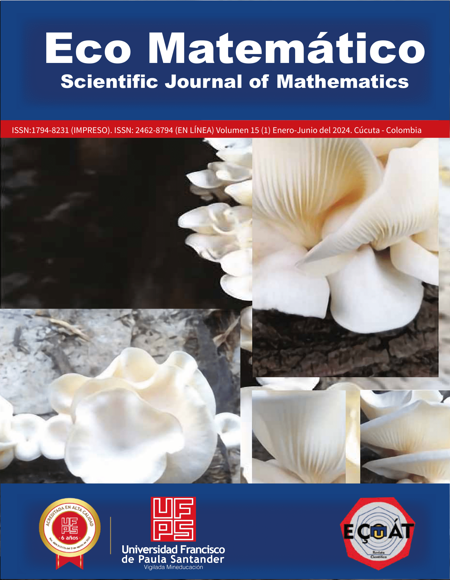Technological Readiness, Adaptation to Remote Teaching and ICT Use in the Post-Pandemic: A Logistic Regression Model for Colombian Teachers
Preparación Tecnológica, Adaptación a la Enseñanza Remota y Uso de TIC en la Postpandemia: Un Modelo de Regresión Logística para Docentes Colombianos
Main Article Content
The COVID-19 pandemic has accelerated the integration of ICT in education, forcing teachers to adapt quickly to remote teaching. This study investigates teachers' perceptions of the educational crisis experienced during the pandemic and the challenges in the post-pandemic phase. Using a quantitative approach through structured surveys of 534 teachers in Colombia, it examines adaptation to remote teaching, technological readiness and ICT use in the post-pandemic period. Statistical analyses such as chi-square and logistic regression tests revealed a high capacity for adaptation and a greater appreciation of ICT, although challenges remain in terms of access to resources and training. Teachers who were better prepared technologically were more adaptable and continue to use ICTs. The pandemic has fostered collaboration and reflection on innovative educational practices. It is recommended to strengthen continuous training in digital skills, improve technological infrastructure and promote hybrid educational models to maximise the potential of ICT in post-pandemic education.
Downloads
Article Details
Banco de la República. (2022). Efecto de la pandemia sobre el sistema educativo colombiano. https://www.banrep.gov.co/es/blog/efecto-pandemia-sobre-sistema-educativo-colombiano
Bao, W. (2020). COVID-19 and online teaching in higher education: A case study of Peking University. Human Behavior and Emerging Technologies, 2(2), 113-115. https://doi.org/10.1002/hbe2.191 DOI: https://doi.org/10.1002/hbe2.191
Bryman, A. (2016). Social Research Methods. Oxford University Press.
Creswell, J. W. (2014). Research Design. Qualitative, quantitative and mixed methods approaches (4th ed.). Sage Publications.
Darling-Hammond, L., Hyler, M. E., & Gardner, M. (2017). Effective teacher professional development. Learning Policy Institute. DOI: https://doi.org/10.54300/122.311
Darling-Hammond, L., Hyler, M. E., & Gardner, M. (2020). Effective teacher professional development. Learning Policy Institute.
DeVellis, R. F. (2016). Scale development: Theory and applications (4th ed.). Sage Publications.
Di Pietro, G., Biagi, F., Costa, P., Karpiński, Z., & Mazza, J. (2020). The likely impact of COVID-19 on education: Reflections based on the existing literature and recent international datasets. JRC Technical Reports. https://doi.org/10.2760/126686
Ertmer, P. A., & Ottenbreit-Leftwich, A. (2010). Teacher technology change: How knowledge, confidence, beliefs, and culture intersect. Journal of Research on Technology in Education, 42(3), 255-284. DOI: https://doi.org/10.1080/15391523.2010.10782551
Fernández-Batanero, J. M., Román-Graván, P., Reyes-Rebollo, M. M., & Montenegro-Rueda, M. (2021). Impact of educational technology on teacher stress and anxiety: A literature review. Educational Technology & Society, 24(1), 124-135.
Field, A. P. (2018) Discovering Statistics Using IBM SPSS Statistics (5th ed.). Sage.
Hodges, C., Moore, S., Lockee, B., Trust, T., & Bond, A. (2020). The difference between emergency remote teaching and online learning. Educause Review. https://er.educause.edu/articles/2020/3/the-difference-between-emergency-remote-teaching-and-online-learning
International Society for Technology in Education. (2020). Educators are key to digital learning success. International Society for Technology in Education. https://www.iste.org/
König, J., Jäger-Biela, D. J., & Glutsch, N. (2020). Adapting to online teaching during COVID-19 school closure: Teacher education and teacher competence effects among early career teachers in Germany. European Journal of Teacher Education, 43(4), 608-622. https://doi.org/10.1080/02619768.2020.1809650 DOI: https://doi.org/10.1080/02619768.2020.1809650
Ministerio de Educación Nacional. (2020). Virtualidad y alternancia: El 2020, año de retos y oportunidades para la educación. https://www.mineducacion.gov.co/1780/articles-402486_recurso_1.pdf
Ministerio de Educación Nacional. (2022a). Evaluar para avanzar. ICFES-Mineducación. https://www.mineducacion.gov.co/1780/articles-363488_recurso_11.pdf
Ministerio de Educación Nacional. (2022b, 10 de noviembre). Las pérdidas de aprendizaje por la pandemia nos han llevado a la peor crisis de la educación en dos generaciones. https://www.mineducacion.gov.co/portal/salaprensa/Comunicados/412942:Las-perdidas-de-aprendizaje-por-la-pandemia-nos-han-llevado-a-la-peor-crisis-de-la-educacion-en-dos-generaciones-Mineducacion-en-Foro-Educativo-Nacional-2022
Mishra, L., Gupta, T., & Shree, A. (2020). Online teaching-learning in higher education during lockdown period of COVID-19 pandemic. International Journal of Educational Research Open, 1, 100012. https://doi.org/10.1016/j.ijedro.2020.100012 DOI: https://doi.org/10.1016/j.ijedro.2020.100012
Mishra, P., & Koehler, M. J. (2006). Technological pedagogical content knowledge: A framework for teacher knowledge. Teachers College Record, 108(6), 1017-1054. DOI: https://doi.org/10.1177/016146810610800610
Organización de Estados Iberoamericanos. (2021). Retorno escolar presencial pospandemia en Iberoamérica: Avances, reflexiones y recomendaciones. OEI. https://oei.int/downloads/blobs/eyJfcmFpbHMiOnsibWVzc2FnZSI6IkJBaHBBclV3IiwiZXhwIjpudWxsLCJwdXIiOiJibG9iX2lkIn19--4a954fdfd0a9e090c0b7e602c09249bf9d4fa4e5/Informe%20Retorno%20clases%20IB%20-%20general.pdf
Organización para la Cooperación y el Desarrollo Económico. (2020a). Education and COVID-19: Focusing on the long-term impact of school closures. OECD Publishing. https://www.oecd.org/coronavirus/policy-responses/education-and-covid-19-focusing-on-the-long-term-impact-of-school-closures-2cea926e/
Organización para la Cooperación y el Desarrollo Económico. (2020b). The impact of COVID-19 on education: Insights from education at a glance 2020. https://www.oecd.org/education/the-impact-of-covid-19-on-education-insights-education-at-a-glance-2020.pdf
Organización de las Naciones Unidas para la Educación, la Ciencia y la Cultura. (2020). Education: From COVID-19 school closures to recovery. https://en.unesco.org/covid19/educationresponse
Pallant, J. (2020). SPSS Survival Manual: A Step by Step Guide to Data Analysis Using IBM SPSS. McGraw-Hill, Open University Press. https://doi.org/10.4324/9781003117452 DOI: https://doi.org/10.4324/9781003117452
Redecker, C. (2017). European framework for the digital competence of educators: DigCompEdu. European Union. https://doi.org/10.2760/159770
Reimers, F. M., & Schleicher, A. (2020). A framework to guide an education response to the COVID-19 Pandemic of 2020. OECD.
Schleicher, A. (2020). The impact of COVID-19 on education: Insights from education at a glance 2020. OECD.
Tavakol, M., & Dennick, R. (2011). Making sense of Cronbach's alpha. International Journal of Medical Education, 2, 53-55. https://doi.org/10.5116/ijme.4dfb.8dfd DOI: https://doi.org/10.5116/ijme.4dfb.8dfd
Trust, T., & Whalen, J. (2020). Should teachers be trained in emergency remote teaching? Lessons learned from the COVID-19 pandemic. Journal of Technology and Teacher Education, 28(2), 189-199.
Vincent-Lancrin, S., & Van Der Vlies, R. (2020). Trustworthy artificial intelligence (AI) in education: Promises and challenges. OECD Education Working Papers, (218). https://www.oecd-ilibrary.org/education/trustworthy-artificial-intelligence-ai-in-education_a6c90fa9-en
Zhang, W., Wang, Y., Yang, L., & Wang, C. (2020). Suspending classes without stopping learning: China's education emergency management policy in the COVID-19 outbreak. Journal of Risk and Financial Management, 13(3), 55. https://doi.org/10.3390/jrfm13030055 DOI: https://doi.org/10.3390/jrfm13030055







